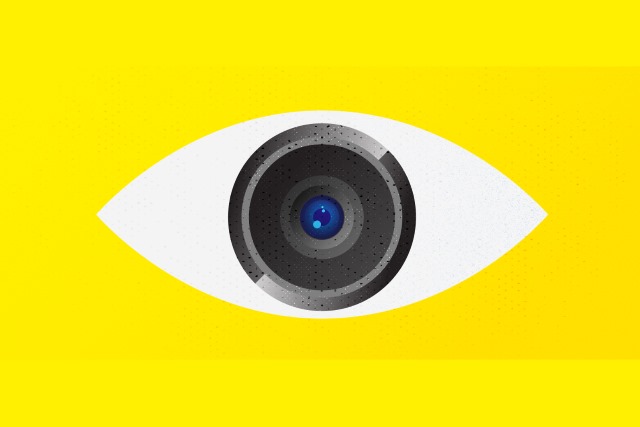
Firefox for Linux is now Netflix compatible
Relying on a Linux distribution as your full time operating system can be great -- until it isn't. While there are many quality packages and applications that are compatible with the open source kernel, every once in awhile you will run into something that simply isn't available. When this happens, it can be very frustrating.
For a while, Netflix was not available for traditional Linux-based operating systems, meaning users were unable to enjoy the popular streaming service without booting into Windows. This was due to the company's reliance on Microsoft Silverlight. Since then, Netflix adopted HTML5, and it made Google Chrome and Chromium for Linux capable of playing the videos. Unfortunately, Firefox -- the open source browser choice for many Linux users -- was not compatible. Today this changes, however, as Mozilla's offering is now compatible with Netflix!

WikiLeaks holds tech companies' feet to the fire before helping with zero days revealed in CIA leaks
The CIA's hacking tools leaked in the WikiLeaks Vault 7 disclosure revealed vulnerabilities in a range of popular software titles. Julian Assange has said that his organization will share details of the zero days revealed in the documents with the respective technology companies, but it now transpires that there are certain conditions to meet first. It’s a situation that has more than a slight air of "ransom" to it.
Microsoft has initially complained that after the initial leak there had been no contact from either WikiLeaks or the CIA, but it seems that contact has now been made with the Windows-maker and other companies. Mozilla is among those to have been contacted and to have responded, and sources suggest that Assange has attached conditions to disclosing details of vulnerabilities.

Mozilla: people have no idea how to protect their privacy and security online
Privacy and security are major concerns when it comes to life online, but a survey by Mozilla reveals that a worrying number of people do not know how to stay in control of them. The company also found that a third of people feel they have no control over their information online, with a similar number confessing to knowing "very little" about encryption.
But these are not the only concerns of internet users. Mozilla also asked about people's greatest online fears. Topping the list is "being hacked by a stranger" (a fear held by 80 percent of people), and "being tracked by advertisers" (61 percent). As well as presenting the results of its survey, Mozilla also has some important advice.

Mozilla says Trump's revised immigration Executive Order damages the global technology industry
When, shortly after his inauguration, Donald Trump signed an Executive Order blocking immigrants from numerous Muslim-majority countries, Mozilla was among those who filed an amicus brief against the move. Now the organization has spoken out against the president's revised travel ban.
While the new Executive Order drops Iraq from the list of black-listed countries, immigration is still banned from six countries, and the US refugee program remains suspended. The not-for-profit group says it "damages Mozilla, the United States, and the global technology industry", going on to say that "these restrictions are significant and have created a negative impact to Mozilla and our operations."

Mozilla acquires Pocket developer Read It Later for undisclosed sum
Mozilla Corporation has loosened its purse strings and splashed an undisclosed sum of money on buying Read It Later, the company behind web service and browser plugin Pocket.
Described as the company's "first strategic acquisition", Mozilla's purchase of Pocket is part of a drive to promote the discoverability and accessibility of online content. Read It Later will clearly benefit from Mozilla's acquisition, and the Firefox producer says that the developer will also help to accelerate its Context Graph initiative.

Privacy-protecting Ghostery extension sold, Ghostery Inc becomes Evidon after acquisition
There's big news in the world of Ghostery Inc, the company best-known for the browser extension that boosts privacy. The firm's consumer operations have been sold to Cliqz, a German company part-owned by Mozilla, where the Ghostery extension will live on.
Ghostery Inc is rebranding to its former identity of Evidon, which will have a B2B focus. Evidon Inc will provide "monitoring and consent solutions for over 500 leading brands across the world." The deal with Cliqz is an all-cash affair, but details have not been released.

Mozilla rebrands with clever new logo and open source design principles
Mozilla is a very important organization for the open web. While Firefox's share of usage has not been lighting the world on fire lately, Mozilla is much more than just a web browser developer. It often fights for the rights of web users. Since it is a not-for-profit organization, you can be fairly confident that its intentions are pure.
Today, the organization announces a massive rebrand, including a partially crowd-sourced new logo. The logo is quite brilliant, as it is both pretty and sensical -- it incorporates the :// used in web addresses. While the clever logo is the star of the show, it is hardly the only new aspect. Mozilla is using open source design principles as well for things like colors, images, and fonts. In fact, the all new "Zilla" font is free to use by all.
Mozilla Firefox 50 trims start-up times, widens download protection
Mozilla has released Firefox 50.0 for Windows, Mac and Linux, with Firefox for Android 50.0 due imminently. For the second release in a row it’s launched a week late, but this time the reason behind the pause is different.
The extra week gave Firefox 50 time to unveil its headline new feature: significant start-up improvements, achieved through an overhaul of the application’s add-on SDK module system. Elsewhere download protection covers a wider range of executable files, plus Firefox 50 introduces a smattering of useful usability improvements.

Mozilla pulls Battery Status API from Firefox over privacy concerns
It was supposed to be a feature that allowed more efficient versions of websites to be delivered to people running out of battery power.
But the Battery Status API built into Firefox was also found to be problematic from a privacy point of view after it was discovered that visitors' battery levels could be used to track them online. In response to this the API is being pulled from Firefox.

Mozilla awards $300,000 to four open source projects
Mozilla's love of open source is nothing new -- just look to the Mozilla Open Source Support (MOSS) program. Loving a philosophy is one thing, but Mozilla has also put its money where its mouth is.
In the third quarter of this year, MOSS awarded more than $300,000 to four projects which it either already supported, or which were aligned with the organization's mission. One of the smallest awards -- $56,000 -- was made to Speech Rule Engine, a text-to-speech style component that makes mathematical and scientific content more accessible.

Mozilla announces Project Mortar to bring Chrome plugins to Firefox
The browser wars continue as Chrome, Opera, Firefox and Edge all vie for attention. One of the biggest draws to any browser is plugin support, and the absence of a particular plugin can make the difference between a user switching allegiances or sticking with their tried-and-tested browser.
With this in mind, Mozilla launches Project Mortar. Its aim is to make the development and maintenance of Firefox as cheap and easy as possible. To do this, it is investigating the possibility of borrowing plugin functionality from other browsers, including PDF and Flash support from Chrome.

Microsoft gains support from Mozilla, EFF, Google and Apple in fight against US gagging orders
Microsoft is fighting the US Justice Department in an attempt to quash a law that prevents companies informing customers that the government is requesting their data. The technology giant has the backing of other tech companies as well as media outlets.
Amazon, Apple, Google, Fox News, Electronic Frontier Foundation and Mozilla are among those offering their support to Microsoft. The lawsuit says that blocking companies from keeping their customers informed is unconstitutional, and it comes at a time when tech companies in particular are keen to be as open and transparent as possible about government requests for data.

Mozilla wants EU copyright law reform
Mozilla has called out the European Union, asking it to reform its copyright laws. The current one, according to the organization, is holding innovation and economic development down. Writing a blog post on the topic, Mozilla CIO Katharina Borchert says EU’s copyright laws are stopping great ideas in their tracks.
"The internet brings new ideas to life every day, and helps make existing ideas better. As a result, we need laws that protect and enshrine the internet as an open and collaborative platform", Borchert says.
Firefox 48 FINAL improves download protection as part of wider security crackdown
Mozilla has unveiled Firefox 48 FINAL for desktop. After the relatively minor releases of late, Firefox 48 contains a number of notable new features, both visible and behind the scenes, to excite users.
There’s improved protection against potentially malicious downloads, the requirement for add-ons to be both verified and signed by Mozilla before they will load, and a number of WebRTC enhancements -- and that’s just for starters.

Browsing Firefox's hidden browsing history with Pin Patrol
If you’re wondering what someone’s been doing in Firefox then you could check the browser history, but if they’ve deleted it, along with any cookies, cache or logins, you won’t learn very much.
What isn’t so obvious is that Firefox has a hidden browsing history which records some of the sites you’ve visited, and isn’t removed when you wipe the official "Browsing & Download History".
